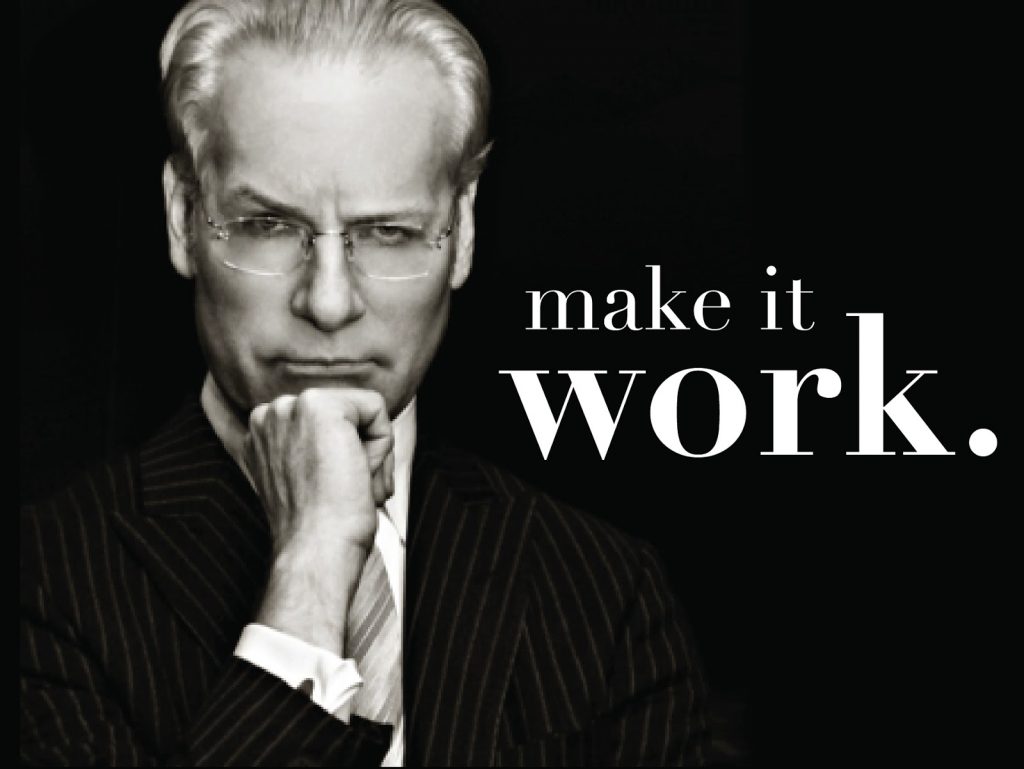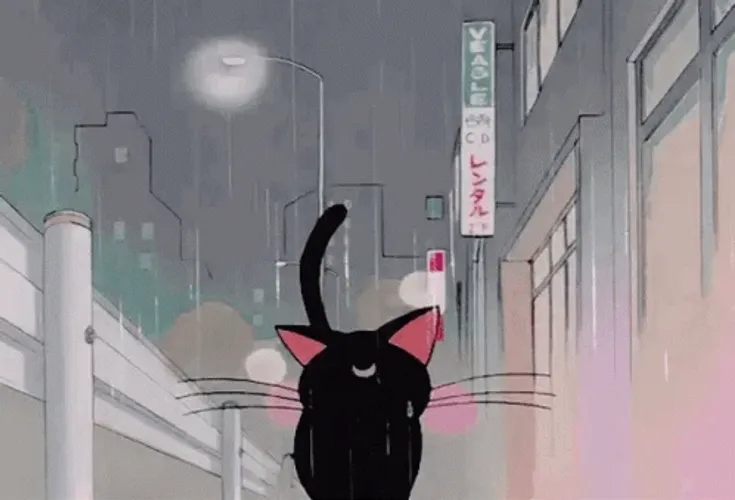
Make It Work
Hi again, reader!
I’m writing to you now several weeks into the summer as the imminence of thesis starts to feel more and more real. Our faculty has reached out to upcoming thesis students to give us guidance on how we should be preparing for the busy fall semester ahead *gulp*.

“Make it work!” Source: Popkey.co
While this is certainly nerve-racking, lots of things are providing reassurances that the work will get done. First of all, the faculty has been kind enough to share some details of what the written portion of thesis will look like so that we can get a “head start,” so to speak. Secondly, they’ve generously suggested the preparatory step of considering the faculty we would like to work with as a “panel.” And, finally, the bulk of our labor lies simply in making work this summer. This is all to say, we have the tools, so we just need to “make it work” (to borrow the immutable words of Project Runway’s Tim Gunn).
Additionally, sources of inspiration and guidance are not lacking in this vital pre-thesis summer. Recently, an art history classmate from my undergraduate studies at Georgia State University reached out to ask about my latest work. This was an unexpected opportunity which I wholly welcomed not only for revisiting friendships, but also for the invaluable perspective of a trusted colleague.
Moreover, this date marks 10 days before I am set to travel to Maine to attend a two-week workshop session at Haystack Mountain School of Crafts. While at Haystack, I will be enrolled in a fibers workshop entitled Piecework as Paradigm examining “piecework, a universal craft language, as a cognitive framework for understanding the complex ways that identities are created and shared” (Haystack Mountain School of Crafts – Summer Sessions). This topic and workshop, I feel, will be particularly instructive as I build my thesis work considering the notions of intimacy I explored throughout my second year in the MFA Interdisciplinary Arts and Media program at Columbia.
As I noted in my application to the workshop, one of the ways that I considered “constructing” intimacy between artist and audience in the latter part of the last semester was through personal exposition, something for which I think examining the “construction” of identity is a natural line of inquiry. Needless to say, I am excited for both the work and the interaction with my peers that this experience will offer me at such a crucial and pivotal time in the pursuit of my MFA. I am particularly excited to embark on this experience because I will be joined by two members of my rising thesis cohort, Ian Kerstetter and Charles Long of the Interdisciplinary Book and Paper Arts program.
Finally, I should note that this opportunity is the result of yet another instance of what I’ve felt throughout my tenure at Columbia to be unwavering support and advocacy from Columbia’s Art & Art History faculty, specifically in this instance Fo Wilson and Mel Potter.
I’ll close by restating how very excited I am, and I look forward to sharing my experience while at Haystack with you soon!
